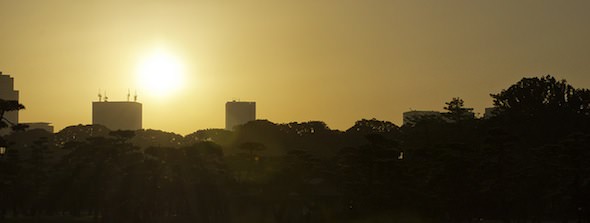‘The Fukushima Secrecy Syndrome’
In December, the Japanese government rammed through parliament a law that would let the government alone decide what state secrets are and throw civil employees who divulge them in jail for up to 10 years, while journalists could get five years, Ralph Nader writes at CounterPunch.
In December, the Japanese government rammed through parliament a law that would let the government alone decide what state secrets are and throw civil employees who divulge them in jail for up to 10 years, while journalists could get five years, Ralph Nader writes at CounterPunch.
Nader states:
Government officials have been upset at the constant disclosures of their laxity by regulatory officials before and after the Fukushima nuclear power disaster in 2011, operated by Tokyo Electric Power Company (TEPCO).
Week after week, reports appear in the press revealing the seriousness of the contaminated water flow, the inaccessible radioactive material deep inside these reactors and the need to stop these leaking sites from further poisoning the land, food and ocean. Officials now estimate that it could take up to 40 years to clean up and decommission the reactors.
Other factors are also feeding this sure sign of a democratic setback. Militarism is raising its democracy-menacing head, prompted by friction with China over the South China Sea. Dismayingly, U.S. militarists are pushing for a larger Japanese military budget. China is the latest national security justification for our “pivot to East Asia” provoked in part by our military-industrial complex.
Read more here.
— Posted by Alexander Reed Kelly.
Your support matters…Independent journalism is under threat and overshadowed by heavily funded mainstream media.
You can help level the playing field. Become a member.
Your tax-deductible contribution keeps us digging beneath the headlines to give you thought-provoking, investigative reporting and analysis that unearths what's really happening- without compromise.
Give today to support our courageous, independent journalists.









You need to be a supporter to comment.
There are currently no responses to this article.
Be the first to respond.